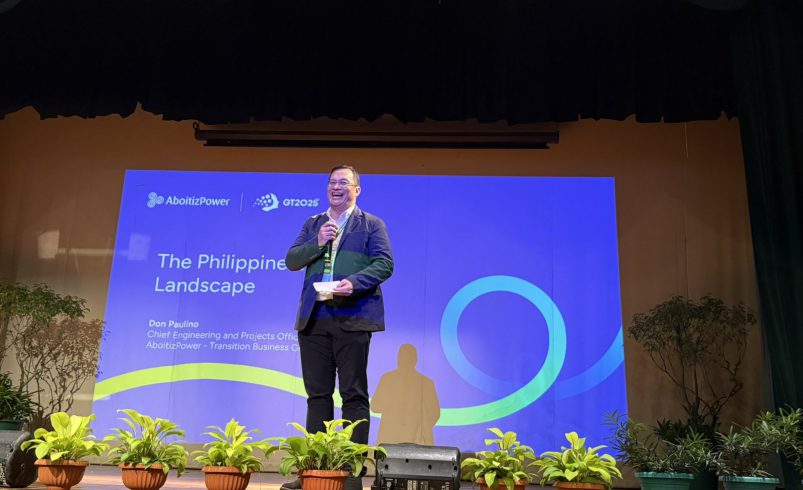AboitizPower exec says 2M Filipinos still lack power, urges inclusive energy shift at DLSU forum
- October 14, 2025
- 0

Energy is more than just fuel for the economy – it is a social equalizer that can lift communities out of poverty and drive inclusive growth. This was the key message of AboitizPower Chief Engineering and Projects Officer Rolando Don Paulino Jr. during his address at ASMODIUM 2025: Surge Towards Sustainability at De La Salle University (DLSU) Manila.
Speaking before students and industry professionals, Paulino said that while the Philippines continues to pursue decarbonization, the transition to clean energy must not lose sight of the millions of Filipinos who still live without electricity. “Two million of our countrymen don’t have electricity,” he said. “Energy is a social enabler. It affects education, livelihoods, and information. If we fail to provide access, we deprive communities of progress.”
Paulino emphasized that every country’s path toward renewable energy is different, and that the Philippines’ archipelagic geography poses unique challenges. “We’re an archipelagic country with 7,100 islands, different grid systems, and uneven economic growth,” he said. “The question we need to ask is how we navigate this transition in a way that works for us.”
He pointed to microgrids and hybrid systems as key solutions for unserved and off-grid areas, describing how distributed energy can change lives by powering schools, businesses, and local industries. “Access to energy can create opportunities for employment and education,” he specified. “It empowers families to take control of their future.”
While advocating for renewable expansion, Paulino also acknowledged the need to balance sustainability with affordability. He said coal still dominates the energy mix due to cost differences, noting that “the generation cost of coal is around three to four pesos per kilowatt-hour, while gas and offshore wind can reach seven.” He urged both government and private stakeholders to address the price gap by investing in technology, storage, and policy support.
Paulino closed by challenging students to use their knowledge to promote awareness and innovation in energy development. “Students can challenge how we think about our energy mix and the policies that drive it,” he said. “Energy transition is not just for companies – it’s everyone’s responsibility.”
His talk was part of the larger ASMODIUM 2025 seminar organized by the American Society of Mechanical Engineers – DLSU Student Section, which gathered experts from across the energy sector to discuss sustainable development and the future of the Philippine power landscape.
How can the Philippines ensure that its renewable energy transition uplifts the lives of the two million Filipinos who still live without electricity?
Follow Power Philippines on Facebook and LinkedIn or join our Viber community for more updates.